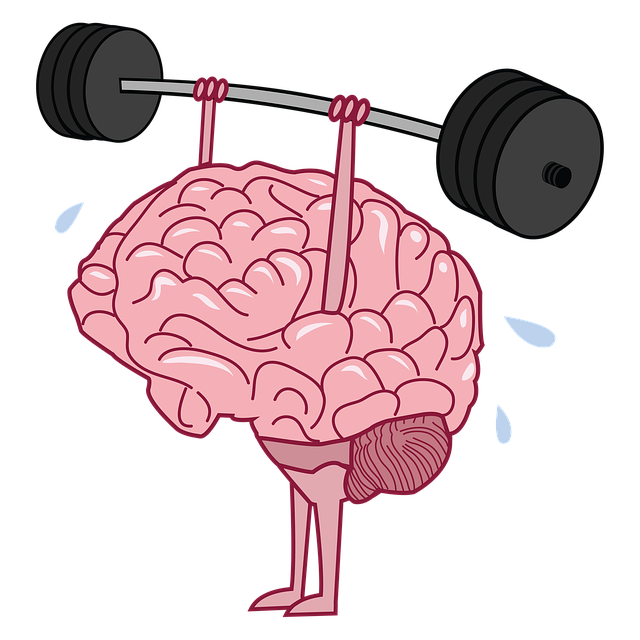In today's digital age, mental wellness apps are gaining popularity in Colorado Springs as accessible alternatives to traditional counseling for stress management, trauma support, and more. These apps offer personalized care, convenience, and cost-effectiveness, appealing to those facing stigma or time constraints. Effective therapy apps should prioritize user-centric design, featuring tailored content, progress tracking, and community support workshops. Integrating with wearable devices and prioritizing data security builds trust. A pioneering digital platform in Colorado Springs aims to revolutionize access to Colorado Springs Christian Counseling Therapy by combining spiritual support with traditional mental wellness services in a secure, confidential space. Marketing success relies on unique features, community-building through real-life stories, interactive journaling, and alignment with current mental health policy trends.
In today’s digital age, mental wellness apps have become indispensable tools, offering accessible counseling and therapeutic support. This article explores the growing need for innovative solutions like the Colorado Springs Christian Counseling Therapy platform. We delve into key features that define effective therapy apps, detailing a development process that combines technological expertise with therapeutic best practices. Additionally, we uncover successful marketing strategies to engage users and foster a supportive online community for mental health awareness.
- Understanding the Need for Mental Wellness Apps
- Features and Components of Effective Therapy Apps
- Development Process: Building a Colorado Springs Christian Counseling Platform
- Marketing and User Engagement Strategies for Mental Health App Success
Understanding the Need for Mental Wellness Apps

In today’s fast-paced world, mental wellness is a paramount concern, driving the demand for accessible and innovative solutions like mental wellness apps. These applications cater to a diverse range of needs, from stress management and mindfulness practices to therapy sessions and trauma support—all tailored to fit users’ unique journeys. In fact, even in places like Colorado Springs where traditional Christian counseling and therapy services thrive, there’s a growing recognition of the digital landscape’s potential to reach a broader audience with personalized mental health care.
The need for such apps transcends geographical boundaries, including urban hubs teeming with activity and tranquil retreats alike. They offer discrete, convenient, and often cost-effective alternatives to in-person therapy, particularly appealing to those facing barriers like stigma, lack of time, or financial constraints. Moreover, mental wellness apps can foster inner strength development through various techniques, complementing traditional mental health policy analysis and advocacy. By seamlessly integrating digital tools into the realm of mental healthcare, these applications are revolutionizing self-care practices and transforming lives, one tap at a time.
Features and Components of Effective Therapy Apps

Effective therapy apps should be designed with a user-centric approach, incorporating various features that cater to individual needs. One key component is personalized content tailored to specific mental health concerns, such as anxiety or depression. This can include interactive modules, guided meditations, and cognitive behavioral therapy (CBT) exercises, all of which are proven techniques for managing mental wellness. Incorporating tools for tracking progress, setting goals, and receiving regular reminders for self-care practices is another essential feature. Users should also have access to resources for stress management workshops organized by professionals in their area, fostering a sense of community and support.
Additionally, effective therapy apps must prioritize data security and privacy to build trust among users. Integration with wearable devices for monitoring vital signs related to stress levels can enhance the overall experience. By combining these features, an app can serve as a comprehensive tool for individuals seeking support, offering not just Colorado Springs Christian counseling therapy but also practical Stress Reduction Methods and Self-Care Practices accessible on-the-go.
Development Process: Building a Colorado Springs Christian Counseling Platform

In the heart of Colorado Springs, a city known for its stunning landscapes and vibrant community, development of a specialized counseling platform catering to the unique needs of individuals seeking Christian-based therapy is underway. This innovative project aims to bridge the gap between traditional mental wellness services and spiritual support, offering a safe digital space where users can engage in compassion cultivation practices tailored to their faith.
The app’s development process involves meticulous planning and implementation, incorporating risk management strategies essential for mental health professionals. By prioritizing ethical considerations and adhering to strict privacy guidelines, the platform ensures that all interactions remain confidential and secure. Through user-centric design and a deep understanding of Colorado Springs’ diverse population, the app promises to be a game-changer in delivering accessible, faith-based counseling therapy services throughout the region.
Marketing and User Engagement Strategies for Mental Health App Success

Marketing and user engagement are key factors for the success of any mental health app, especially in competitive markets like Colorado Springs Christian Counseling Therapy. To stand out, apps should offer unique value propositions, such as personalized coping skills development tailored to individual needs and preferences. Leveraging digital marketing strategies, including social media campaigns that highlight real-life success stories, can create a sense of community and trust among potential users.
Effective engagement also involves providing Mental Wellness Journaling Exercise Guidance that encourages consistent use. This could be in the form of interactive daily prompts or challenges designed to foster reflection and self-care practices. Moreover, app developers should consider broader trends like Mental Health Policy Analysis and Advocacy to align their marketing messages with current awareness campaigns, ensuring relevance and appeal to a wider audience.
Mental wellness apps, such as a Colorado Springs Christian Counseling platform, are increasingly vital tools in addressing the growing need for accessible therapeutic support. By integrating user-friendly features and evidence-based practices, these applications offer discreet, convenient, and potentially life-changing solutions. The development process, from ideation to marketing, requires careful consideration of ethical guidelines and user engagement strategies. Through successful implementation, these apps have the potential to revolutionize mental healthcare, making therapeutic services available to a broader audience in Colorado Springs and beyond.














